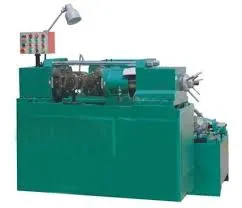
-
 Afrikaans
Afrikaans -
 Albanian
Albanian -
 Amharic
Amharic -
 Arabic
Arabic -
 Armenian
Armenian -
 Azerbaijani
Azerbaijani -
 Basque
Basque -
 Belarusian
Belarusian -
 Bengali
Bengali -
 Bosnian
Bosnian -
 Bulgarian
Bulgarian -
 Catalan
Catalan -
 Cebuano
Cebuano -
 Corsican
Corsican -
 Croatian
Croatian -
 Czech
Czech -
 Danish
Danish -
 Dutch
Dutch -
 English
English -
 Esperanto
Esperanto -
 Estonian
Estonian -
 Finnish
Finnish -
 French
French -
 Frisian
Frisian -
 Galician
Galician -
 Georgian
Georgian -
 German
German -
 Greek
Greek -
 Gujarati
Gujarati -
 Haitian Creole
Haitian Creole -
 hausa
hausa -
 hawaiian
hawaiian -
 Hebrew
Hebrew -
 Hindi
Hindi -
 Miao
Miao -
 Hungarian
Hungarian -
 Icelandic
Icelandic -
 igbo
igbo -
 Indonesian
Indonesian -
 irish
irish -
 Italian
Italian -
 Japanese
Japanese -
 Javanese
Javanese -
 Kannada
Kannada -
 kazakh
kazakh -
 Khmer
Khmer -
 Rwandese
Rwandese -
 Korean
Korean -
 Kurdish
Kurdish -
 Kyrgyz
Kyrgyz -
 Lao
Lao -
 Latin
Latin -
 Latvian
Latvian -
 Lithuanian
Lithuanian -
 Luxembourgish
Luxembourgish -
 Macedonian
Macedonian -
 Malgashi
Malgashi -
 Malay
Malay -
 Malayalam
Malayalam -
 Maltese
Maltese -
 Maori
Maori -
 Marathi
Marathi -
 Mongolian
Mongolian -
 Myanmar
Myanmar -
 Nepali
Nepali -
 Norwegian
Norwegian -
 Norwegian
Norwegian -
 Occitan
Occitan -
 Pashto
Pashto -
 Persian
Persian -
 Polish
Polish -
 Portuguese
Portuguese -
 Punjabi
Punjabi -
 Romanian
Romanian -
 Russian
Russian -
 Samoan
Samoan -
 Scottish Gaelic
Scottish Gaelic -
 Serbian
Serbian -
 Sesotho
Sesotho -
 Shona
Shona -
 Sindhi
Sindhi -
 Sinhala
Sinhala -
 Slovak
Slovak -
 Slovenian
Slovenian -
 Somali
Somali -
 Spanish
Spanish -
 Sundanese
Sundanese -
 Swahili
Swahili -
 Swedish
Swedish -
 Tagalog
Tagalog -
 Tajik
Tajik -
 Tamil
Tamil -
 Tatar
Tatar -
 Telugu
Telugu -
 Thai
Thai -
 Turkish
Turkish -
 Turkmen
Turkmen -
 Ukrainian
Ukrainian -
 Urdu
Urdu -
 Uighur
Uighur -
 Uzbek
Uzbek -
 Vietnamese
Vietnamese -
 Welsh
Welsh -
 Bantu
Bantu -
 Yiddish
Yiddish -
 Yoruba
Yoruba -
 Zulu
Zulu
Thread Rolling Solutions by Leading Manufacturers for Precision Engineering Applications
The Importance of Thread Rolling and the Role of Manufacturers
Thread rolling is a vital manufacturing process that plays a crucial role in various industries, including automotive, aerospace, construction, and machinery. As a forming process that converts a solid workpiece into a desired shape by displacing material, thread rolling is particularly renowned for its ability to create high-strength threads without the need for cutting tools. This article delves into the importance of thread rolling, the benefits it offers, and the significant role of manufacturers in this process.
Understanding Thread Rolling
Thread rolling is a cold forming process where the material is deformed to create threads. Unlike traditional machining methods that cut away material, thread rolling preserves the integrity of the metal, resulting in stronger, more durable threads. The process involves the use of rollers that press against a workpiece, forcing the material to flow and form the desired thread profile. This method is typically applied to cylindrical parts and is highly favored for its speed and efficiency.
Advantages of Thread Rolling
One of the primary advantages of thread rolling is its ability to produce high-strength threads. The process enhances the grain structure of the material, resulting in improved mechanical properties such as tensile strength and fatigue resistance. This makes thread-rolled components ideal for applications where durability is paramount.
Additionally, thread rolling is a highly efficient process. It can produce threads faster than traditional cutting methods, making it suitable for high-volume production. Manufacturers can significantly reduce production times while maintaining consistent quality. Furthermore, because there is minimal material waste during the rolling process, thread rolling is an environmentally friendly option in comparison to subtractive machining processes.
thread rolling manufacturer

Cost-effectiveness is another significant benefit of thread rolling. While the initial setup for thread rolling machinery can be higher than that for traditional methods, the reduced cycle time and lower material waste lead to lower long-term production costs. For manufacturers producing large quantities of threaded components, the savings can be substantial.
The Role of Thread Rolling Manufacturers
Thread rolling manufacturers play a critical role in the success of the thread rolling process. They not only provide the necessary machinery and tools but also employ skilled technicians who understand the intricacies of the process. A reputable manufacturer typically offers custom solutions tailored to meet specific client needs, which includes designing unique roller profiles based on the desired thread type.
Moreover, manufacturers invest in research and development to enhance the efficiency and precision of thread rolling machines. Innovations in this field have led to the creation of CNC-controlled thread rollers, which allow for greater accuracy and flexibility in production. These advancements enable manufacturers to handle a wide range of materials, from standard industrial metal alloys to specialized materials with unique properties.
Quality control is another essential aspect of what thread rolling manufacturers provide. Strict quality assurance practices ensure that all threaded components meet the necessary industry standards and specifications. This not only promotes safety in applications but also enhances the reputation of manufacturers as reliable suppliers in the market.
Conclusion
Thread rolling is an indispensable manufacturing technique that contributes to the production of high-quality, durable threaded components across various industries. Its advantages, including enhanced strength, efficiency, and cost-effectiveness, make it a preferred choice for manufacturers looking to deliver superior products. The vital role played by thread rolling manufacturers—who provide expertise, equipment, and quality control—cannot be overstated. As industries continue to evolve and seek innovative solutions, the significance of thread rolling and its manufacturers will undoubtedly continue to grow, marking a crucial element in the advancement of modern manufacturing practices.
